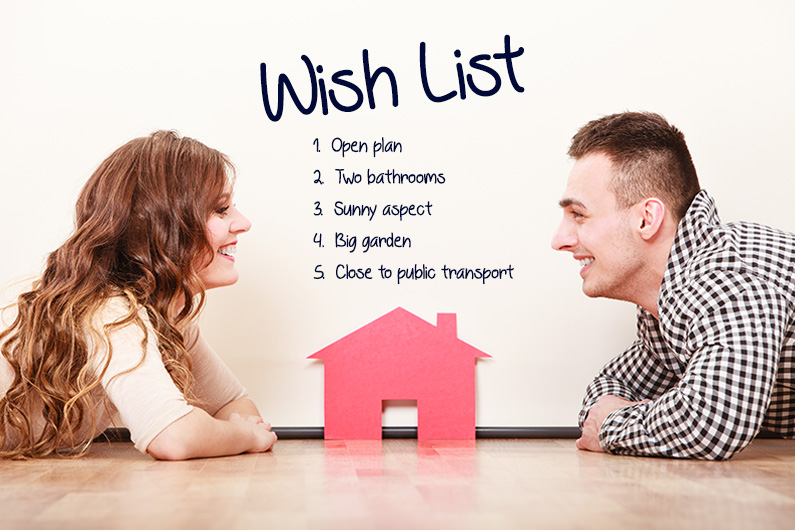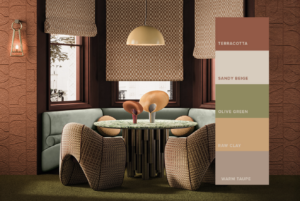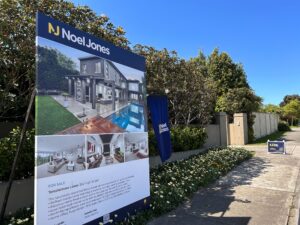Is it in a suburb that suits your needs both now and in the future?
In 5 years’ time your needs could be very different especially if you start a family or retire, therefore you will need to consider if the surrounding area has the schools, facilities and infrastructure to support you. You may also need to consider the commute to work.
Does it include most of the features on your wish list?
Before attending open for inspections divide your list into must-haves and nice-to-haves. This will enable you to remain clear headed about homes that suit your needs rather than rejecting them because they don’t tick every box on your list.
Warning signs
Peeling paint, rusty gutters, wonky floors, and mould are all signs that the property hasn’t been maintained or something isn’t right.
Which direction does the property face?
Take note of which direction the sun rises and sets in relation to the home and understand its impact during winter and summer. If large windows are facing the setting sun are there sun blinds or other shade items to help keep the home cool during summer? What will the home feel like during the shorter, colder days of winter? Do the main living areas have plenty of natural light?
What are the neighbour’s homes like?
It’s easy to forget you’re buying much more than a home; you’re also buying into a neighbourhood. Does the street have a good vibe? Are the homes maintained with neat gardens and no rubbish lying around?
Will any major items/rooms need upgrading?
If the home requires upgrades will you be able to afford them? Conduct online research to discover rough costing for upgrading a kitchen or bathroom so you can decide if it’s more cost effective to search for a home that has already been upgraded.
Systems
Does the home feature the systems and appliances you need/want and if not, can you afford to replace them? Consider electrical, heating, air conditioning, dishwasher, home security etc.
Is it at the top of your budget?
If the home is at the top of your budget—or worse above it—you may be setting yourself up for years of stress as you battle to make repayments. Carefully consider the life you want to live moving forward as you might decide it’s better to buy a home that’s more affordable that leaves extra money to enjoy life.
Does the land size/garden suit your needs?
If you love spending time outdoors gardening or entertaining then you’ll need some space. If mowing the lawn and keeping plants alive is low on your list of priorities then ensure you buy a property with a low maintenance garden.
Can you see yourself living in the space?
While it may not have been love at first sight, remain objective about any home that ticks your must-have boxes. Carpets, wall paint and minor fittings can all be updated over time, whereas layout and number of bathrooms are more costly to change.





